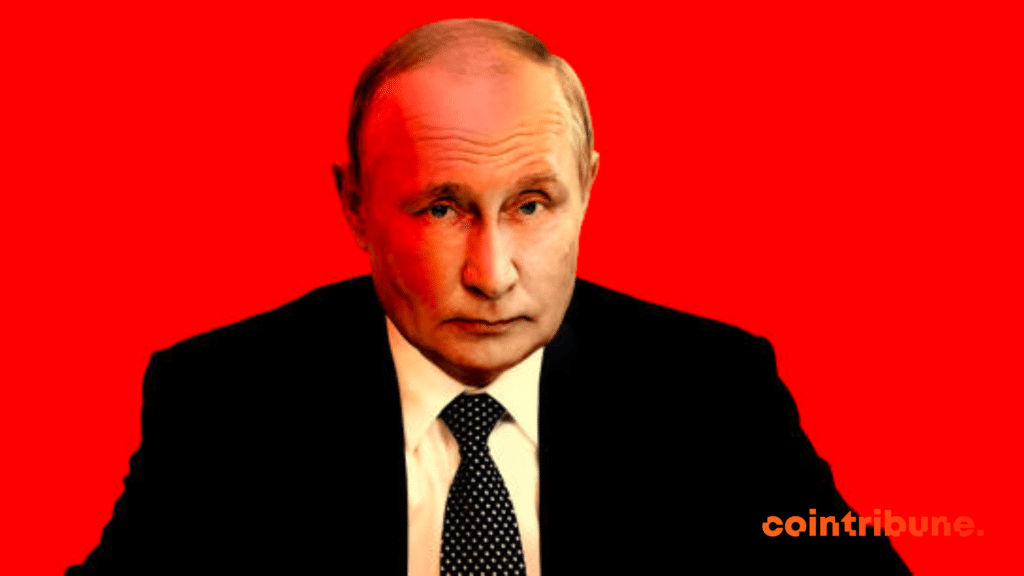Poutine: after Ukraine, Poland?
Tucker Carlson, the former Fox News journalist and potential future Vice President to Donald Trump, recently traveled to Russia to interview Vladimir Putin. This fascinating interview comes at a time when Donald Trump has reaffirmed his desire to dismantle NATO and even let Putin invade Europe. Should we expect Putin to invade Poland, 80 years after Adolf Hitler?

The Encounter between Putin and Tucker Carlson
It’s not surprising that Putin would choose Tucker for this purpose, despite having refused interviews with other Western media. Over the past two years, Tucker has focused almost monomaniacally on spreading anti-Ukraine narratives.
In this interview, Putin claims that Ukraine legitimately belongs to Russia, due to linguistic and cultural similarities and historical relations. He only mentions NATO’s expansion when prompted by Tucker, and then only briefly.
Putin, the Ethnic Imperialist
In short, Putin recalled a fundamental fact that we tend to forget: if Russia invaded Ukraine, it is above all because of an ethnic imperialism. We think that imperialists are mainly motivated by commercial interests and resource extraction.
But we seldom think of ethnic imperialism: an empire attempting to engulf neighboring polities due to linguistic and cultural similarity, in order to rule over a specific cultural sphere.
Putin does not want Ukraine’s wheat farms. He is not motivated by an ideology of global conquest either. He simply wants Russia to reign over all places he considers part of its historical and linguistic sphere of influence.
The question is, where does this sphere end? Putin assured Carlson that he had no designs on Latvia or Poland.
Thus, he leaves aside Estonia, 25% of whose population is Russian-speaking and which Russia continues to intimidate despite its NATO membership.
Poland, the Longtime Enemy
Poland and Russia have a long history of conflicts. In the early 1600s, Poland invaded Russia and occupied Moscow. Half a century later, Russia retaliated by invading and occupying part of Poland.
Russia then defeated the Swedes and fully conquered Poland by the late 1700s, ruling for just over a century until World War I allowed Poland to free itself.
The USSR tried to reconquer the country after World War I but was defeated. It then conspired with Nazi Germany to partition Poland. After the betrayal of the Nazis and their defeat, the USSR allowed Poland to retain its official status of an independent country, but in practice, it was closely controlled by Moscow.
It’s clear that this history is very much on Putin’s mind when he thinks about Ukraine.
Putin thinks a lot about the 1600s and the conflict between Russia and Poland that took place during that century.
He considers Poland as a natural rival for influence in Eastern Europe, particularly regarding Ukraine. In a way, he’s right.
A New War on the Horizon?
And it’s no coincidence that Poland has been one of the countries most supportive of Ukraine’s war effort against Russia, dedicating a higher percentage of its GDP in 2022 than any other country, except Latvia and Estonia.
Putin, in his interview with Tucker, even blamed Poland for provoking the Nazi invasion by refusing to surrender territories to Hitler.
Looking Back at the Fall of the USSR
At the fall of communism in Europe, Ukraine was about 50% richer than Poland. In 2021, Poland was almost three times richer than Ukraine.
It’s very understandable why Ukraine would want to escape from Russia’s orbit, despite language and history.
Joining the EU offered Poland a golden market. It could benefit from access to the market and investments from Europe, while retaining control over much of its own economic policy.
Poland took advantage of this to shake off the legacy of communism, using direct foreign investments, especially from Germany, to transform into a manufacturing powerhouse.
Beyond FDI and market access, Poles are acutely aware that their swerve away from Russian-type institutions toward European ones helped them to thrive.
Poland Thrived… Away from the Russians
Culturally, Poland benefited from a social consensus emphasizing the “return to Europe”.
Communism was seen as a historical aberration and a foreign (Russian) imposition.
Polish society was ready to make the necessary sacrifices to join the EU and thereby gain the symbolic status of a “normal” European country.
These sacrifices included adopting and implementing Western institutions and practices (strengthening the rule of law, implementing modern banking, financial, and educational systems, reducing corruption, etc.). The process proved fruitful and contributed to even faster growth.
Fundamentally, the fall of the USSR – which Putin described as the “greatest geopolitical catastrophe of the 20th century” – allowed Poland to escape Russia’s sphere of influence for the first time in centuries, moving from a sort of contested frontier to a full-fledged European nation.
It’s evident that the economic success of Poland represents a direct threat to Russian dominance over Ukraine. Poland’s wealth is probably one of the reasons why Ukrainians have been so insistent on joining the EU.
Poland Prepares for War
The protests that pushed pro-Russian President Viktor Yanukovych to flee the country in 2014, triggering Russia’s initial invasion, were all about joining the EU.
American experts like to say that Putin fears Ukraine’s potential economic success could undermine Russian power, but the example of Polish success is already evidence of this.
If EU membership allowed Poland to break away economically from Russia, NATO membership provided a similar boon on the military front.
For the first time in its history, Poland’s western borders are entirely secure. And under the protective aegis of US security guarantees, it is free to exercise its strategic autonomy.
There is a synergy between these two elements: Poland’s remarkable economic boom supports its strategic independence. As Germany, the UK, and the US hesitate to increase their defense budgets, Poland is embarking on a major enhancement of its defense.
In the wake of Russia’s invasion of Ukraine last February, the government at the time embarked on a mission that defense minister Mariusz Blaszczak described as aiming for Poland to have the “strongest land forces in Europe” by acquiring massive firepower and more than doubling the size of its armed forces.
Few hesitated when Prime Minister Mateusz Morawiecki stated in January that the course of the war in Ukraine meant that “we had to arm ourselves even faster” and set the goal at 4% of GDP, while hinting that it could even be raised to 5% over the next decade.
Poland: A Power to Be Crushed by Russia?
Given its smaller population, Poland cannot hope to match Russia’s total military spending, even with a higher GDP per capita.
But Russia’s experience in Ukraine shows that any attempt to conquer a much better-armed Poland would be perilous, even without factoring in NATO’s help. Poland will also be able to support the Ukrainian resistance against Russia and bolster the defenses of Estonia and the other Baltic states against a possible future invasion.
In other words, even if Ukraine falls, the fundamental conflict between Putin and the West will not diminish, because it actually involves Poland.
Poland’s success, backed by the West, represents the main challenge to Russia’s domination of what Putin considers his legitimate sphere of influence. As long as Poland remains wealthy, strong, and independent, Putin, with the 1600s in mind, will always feel a direct threat to Russia.
Poland: A Power to Be Crushed by Russia?
The accession of Poland is the reason why only the dissolution of NATO itself – or its effective dissolution, through a refusal to respond to a mutual aid request under Article 5 – represents Putin’s only hope of dominating Eastern Europe in the way he envisions.
Polish leaders are of course well aware that this could happen, notably because of Germany’s chronic incapacity to act and the Trumpist movement’s antipathy towards NATO.
That’s why they are developing their army so rapidly; they know that Article 5 is not an invincible magic shield.
Will Poland Need Nuclear Weapons?
The obvious next step for Poland would be unfortunately to acquire nuclear weapons.
NATO sometimes shares nuclear weapons with officially non-nuclear states like Germany. Poland has requested to join this program and have nuclear weapons on its own soil.
But if NATO refuses, or if Trump is reelected and seems intent on abandoning NATO, it wouldn’t be at all surprising to see Poland begin to pursue its own nuclear weapons program.
Indeed, credible reports indicate country leaders told NATO they would go nuclear if Poland was not admitted in the 90s. If the NATO guarantees prove brittle, this project could be back on the table.
After three hundred years, Poland has finally freed itself from the Russian yoke and, like Ukraine, doesn’t seem willing to give up that freedom at any price. Americans, including many Trumpists who think leaving Ukraine to Putin would end the conflict in Eastern Europe should thus come back to their senses. As long as Poland is fully independent, economically prosperous, and militarily powerful, Putin will feel that Russia’s position as the master of Eastern Europe is not secure.
Maximize your Cointribune experience with our "Read to Earn" program! For every article you read, earn points and access exclusive rewards. Sign up now and start earning benefits.

Chaque jour, j’essaie d’enrichir mes connaissances sur cette révolution qui permettra à l’humanité d’avancer dans sa conquête de liberté.
The views, thoughts, and opinions expressed in this article belong solely to the author, and should not be taken as investment advice. Do your own research before taking any investment decisions.